If you have oily skin, you may be heaping on cleansers and harsh astringents in an effort to combat excess oil on your skin. But did you know that harsh, irritating ingredients may actually be making the problem worse? There’s a different way to handle oily skin.
A skincare routine for oily skin looks similar to those for normal skin, but you’re going to see a few differences.
Cleansing for oily skin
It probably goes without saying, but you’ll want to avoid oil based cleansers if you have oily skin. You’ll want to look for ingredients that will break up or absorb oil. Let’s take a look at some of those ingredients.
- Kaolin clay: Kaolin clay is a skincare superstar. It helps absorb excess oil on your skin so that it can be easily washed away.
- Salicylic acid: This is a less discussed skincare ingredient, but if you check labels, you’ll see it’s there in a lot of products. Salicylic acid helps to break down fatty compounds, like the excess sebum on your skin.
- Cocamidopropyl betaine: Surfactants are a must. They help oil mix with water so it can be washed away easily. Cocamidopropyl betaine is derived from coconuts, and it’s a gentle surfactant that’s appropriate for the delicate skin on your face.
- Sodium cocoyl isethionate: Another surfactant. This one is gentle enough that it’s sometimes used in baby products.
Why the focus on gentle surfactants for oily skin? First of all, oily skin can also be sensitive skin, but also if your skin is stripped of too many natural oils, or if it becomes irritated, it may produce more oil to compensate. Facial skin is already more delicate than a lot of other skin on your body, so treat it gently.
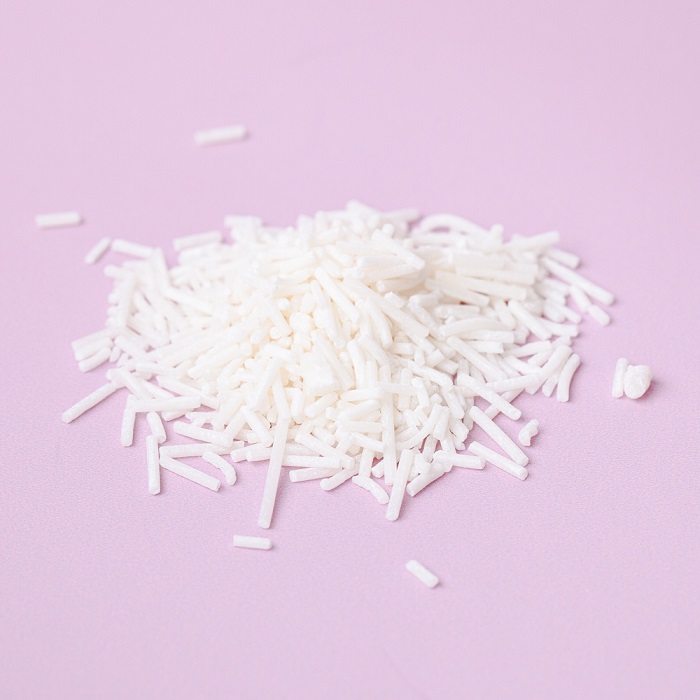
Choosing toners for oily skin
There’s this idea that folks with oily skin need to use harsh astringent toners, and those toners do break up and wipe away excess oil. Toners with harsh ingredients might actually increase oil production in the long run, though.
If your skin feels taut or dry after using your toner, or if it looks shiny once the toner has dried, your toner may be too harsh. Let’s take a look at some toner ingredients that are good for oily skin.
- Niacinamide: A form of vitamin B3 that’s soothing to skin. Soothing oily skin can help balance sebum production.
- Salicylic acid: A gentle beta hydroxy acid that can help clear dead skin cells from the skin’s surface.
- Witch hazel: Witch hazel is a plant that is used as an astringent. It’s milder than alcohol based toners and less likely to irritate your skin.
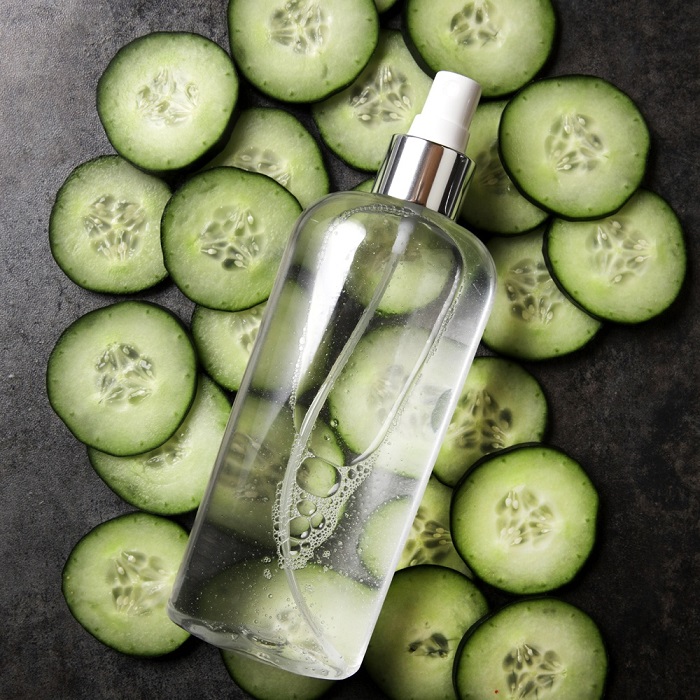
Serums for oily skin
When we talk about serum, we’re talking about a leave-on skin treatment. You only apply a small amount of serum at a time, so these tend to be more concentrated than rinse off products.
Serums can be oil based or water soluble, and for oily skin, you’ll want to use something that’s water soluble and that won’t add a lot of excess oil to your skin.
- Glycerin: A water soluble humectant ingredient that soothes and moisturizes without extra oil.
- Vitamin C: Vitamin C is a nutritional powerhouse and an antioxidant that can help keep skin healthy.
- Hyaluronic acid: A substance that’s created by your own skin that has powerful humectant properties.
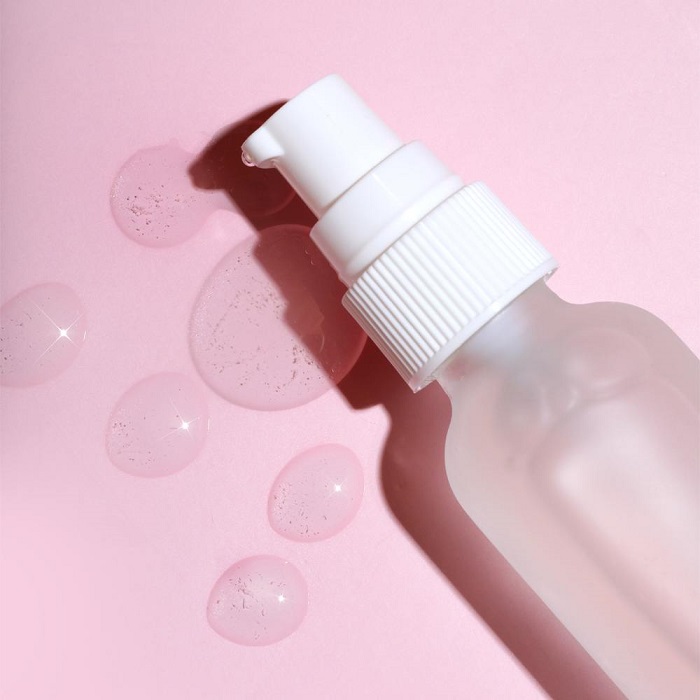
Moisturizers for oily skin
Putting on moisturizer is usually the last step of your skincare routine. Creams and lotions are generally a mix of water and oils that help hydrate and protect your skin. Not all oils are bad for oily skin; in fact some lightweight oils do a great job of soothing and protecting oily skin.
Some folks with oily skin find that going without moisturizer works fine for them. If you prefer to try an oil-free moisturizer, though, those do exist.
Here are some great ingredients to look for in moisturizers for oily skin:
- Cetearyl alcohol: A fatty alcohol that has emollient properties without adding oil to your skin.
- Aloe vera: Aloe is a great ingredient for hydrating and soothing skin.
- Ceramides: Ceramide is a natural part of your skin’s lipid barrier, and can help to boost your outer layer of skin.
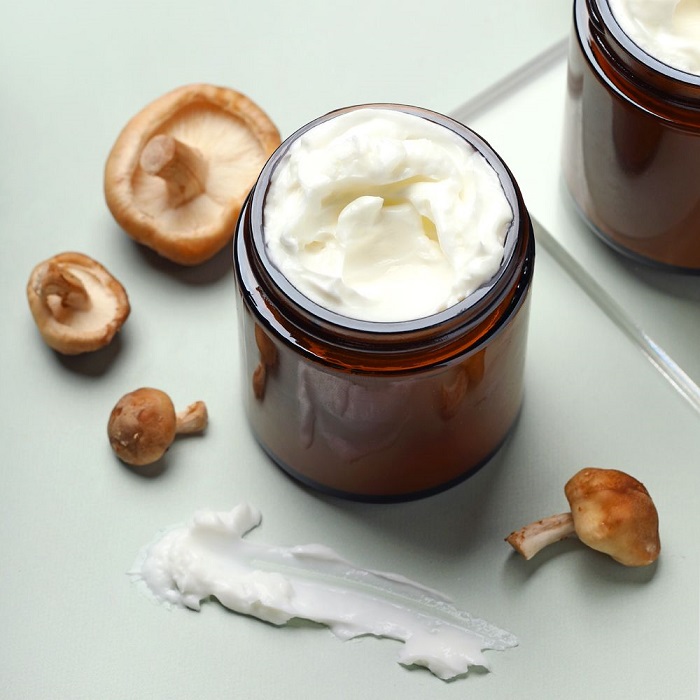
More tips for oily skin
We’ve talked about what you should put on your face to help with oily skin, but here are some other tips.
- Drink enough water: Your skin is hydrated from the inside, too. Making sure you drink enough water can help keep your skin hydrated and in good shape, and help balance sebum production.
- Don’t wash too often: There’s a temptation to wash anytime your face starts to look shiny. Washing too much can encourage your skin to produce more oil, though. So carry some blotting paper with you and gently dab that oil away instead.
- Reduce stress: We all have to deal with stress in our lives, but setting aside time to de-stress can help keep your skin healthy. Whether that’s a walk outside, some time in the garden, or just watching a movie on the couch, set aside some time for you.
- Use a cleansing mask: Clay masks can offer deep but gentle cleansing for folks with oily skin. Use these once a week or so.
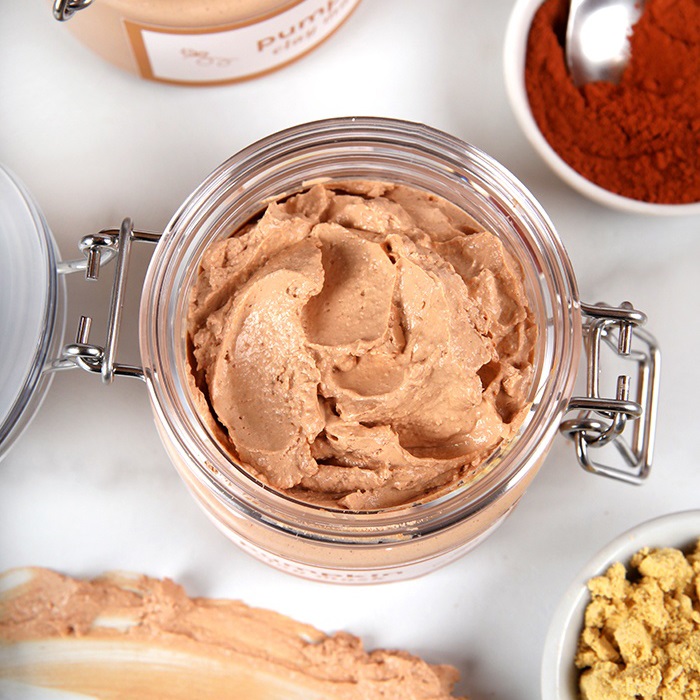
You may have noticed that a lot of our tips have to do with keeping your skin hydrated. You might think that these are all tips for folks with dry skin. A lot of people don’t realize that you can have dry skin and oily skin at the same time. Hydration is the amount of water that your skin has, and the sebum that your skin produces is there to keep hydration in the skin. Your skin needs both.
If your skin becomes dry or irritated, it may produce more sebum as a result, creating oilier skin. Rather than piling on harsh toners and other ingredients that strip the skin, addressing the health of your skin is the best way to balance it. Some people naturally have oily skin than others, but healthy and hydrated skin is a great place to start. The difference is that we want to hydrate and protect oily skin with the lightest use of oils.
If you’re ready to start treating your oily skin to gentle cleansing and hydration, check out these projects:
Rose Hyaluronic Jelly Face Mask Project
Hyaluronic Acid Serum Project
Seaweed and Cucumber Face Mask Project
Pumpkin and Clay Face Mask Project

